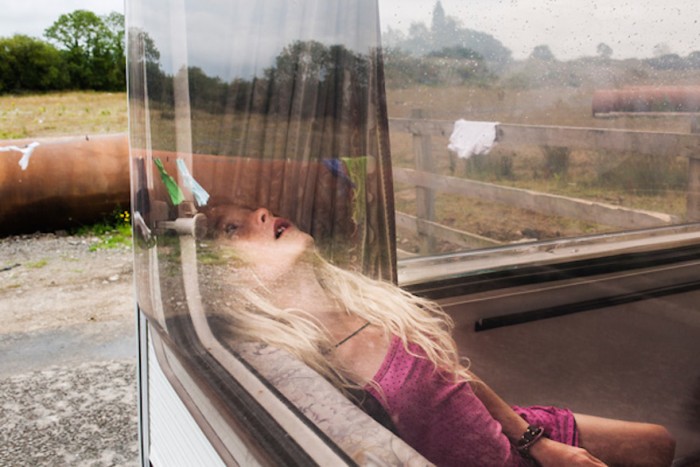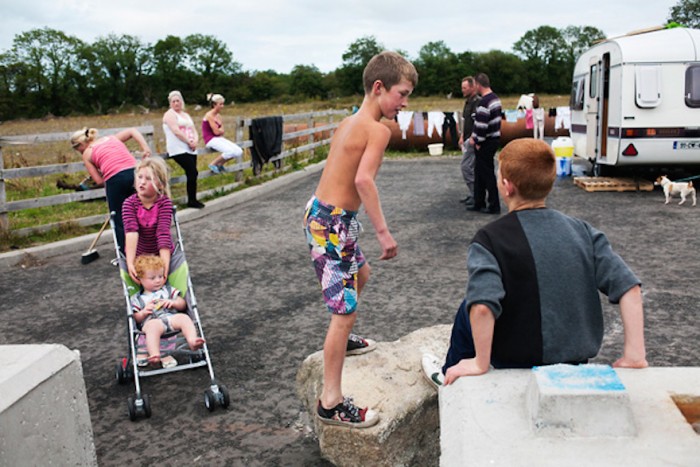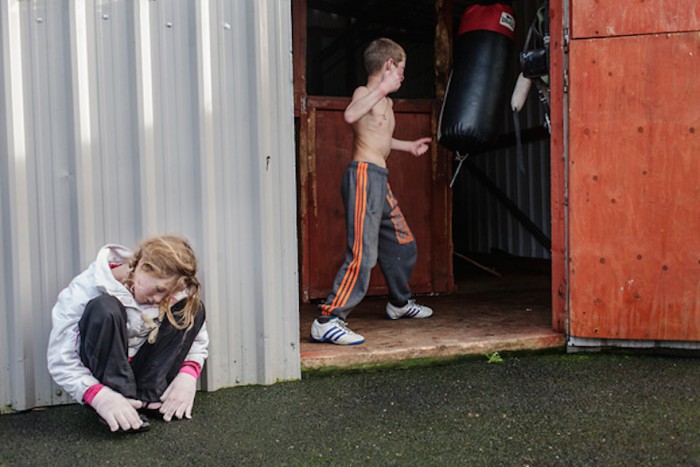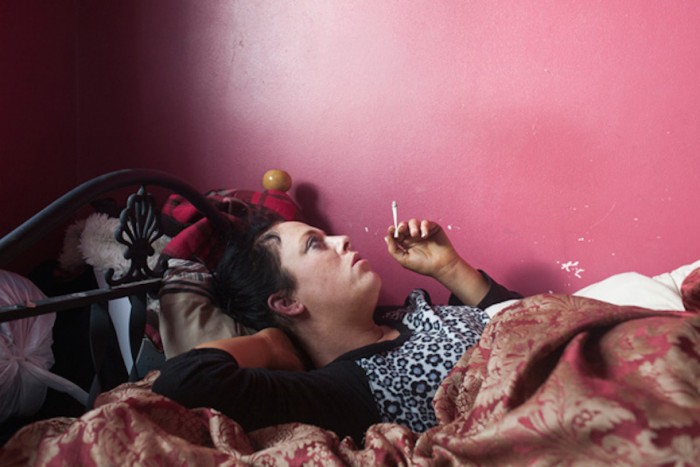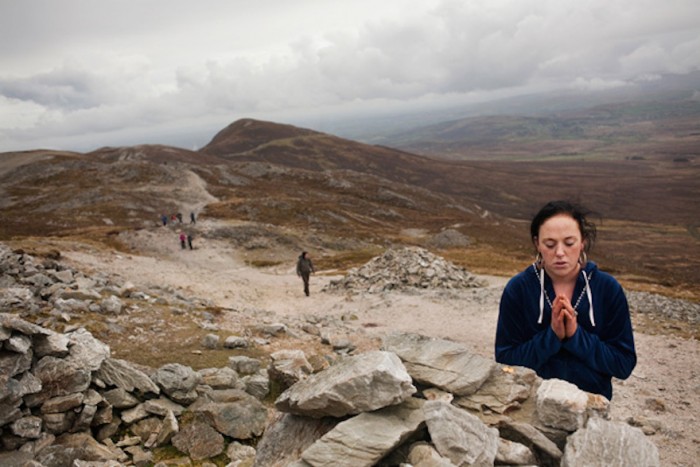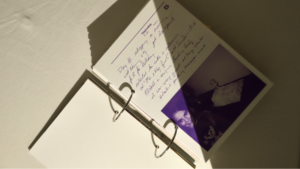The life of an Irish Traveller is wrought with hardship, discrimination, and boredom. Their nomadic way of life stemmed from the tradition of migrant workers. In the past, the group would go wherever the work was, offering skills like seasonal agricultural labour, chimney sweeping and trade across the rural landscape of old Ireland. But as Ireland modernised, the skills of the traveller became redundant, and government efforts to stabilise the minority group unearthed their deep-rooted nomadic identity. Now, illiterate and without a stable means of income, the Travellers struggle to find their place in Ireland.
Today, over 86 per cent of Travellers live stationery lives in modest cottages or trailer camps provided by the Irish government. Here, amenities like water and electricity, while welcomed, do little to secure the Travellers a place in the greater Irish society. One Traveller family became the subject of German documentary photographer Birte Kaufmann’s long-term project, a book titled “The Travellers.”
Kaufmann spent a number of years building a relationship with a Traveller family who would later welcome her and her camera into their daily lives. She set forth to document the daily life of this minority group that had gone unexplored and unaccepted by 21st century Ireland.
“I wanted to capture the travellers’ way of life and their values in pictures. In doing so, I did not want to romanticise them, but rather show their everyday life,” says Kaufmann. “A life where people still hunt rabbits and where horses play a vital role. But it is also a life that contains hardship and boredom from an early age.”
According to Anthropologists Sharon Bohn Gmelch and George Gmelch, the men in the Traveller clan were the hardest hit by the collapse of the rural economy because they could no longer provide for their families. The group adheres to strict gender roles so women have maintained their role as caregivers and cleaners.
The two researchers spent a number of years living in Traveller settlements, documenting the severe poverty, illiteracy, discrimination, and health problems associated with the Traveller life. These hardships, lessened by adaptation to a stationary lifestyle, do little to deter nostalgia for the old-days.
“While settlement has brought Travellers amenities and comfort, it has also left many people, particularly men, feeling lost. Those old enough to have once lived on the road miss having horses and the frequent change of people and places that nomadism inevitably brings,” said the researchers.
“Virtually every photograph depicting Travellers’ former nomadic life prompted nostalgia for a time when—despite the hardship—life had variety and was less complicated, and people shared and cared more for each other.”
The researchers quoted one elderly Traveller as saying: “A house can be like a prison. It keeps you in the one place all the time. I’d give me right arm to be back on the road (sic). There is freedom in living on the road, freedom in abundance. But we didn’t know it until it was gone.”

